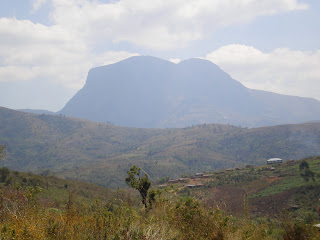The season of fruit has officially returned to Mozambique
The season for litchi, which is the best fruit on earth, though extremely short-lived, only about a month long, and plagued for the first half of it with the Mozambican tendency to pick, sell, and eat produce before it is actually ripe, is the most wonderful month of the Mozambican seasonal produce calendar. Nothing can beat sitting on my front porch, sitting next to a big bag of litchi that only cost $1.20, people watching, and popping litchi after litchi after litchi to pass a Sunday afternoon. If you have never had a litchi, like me before I came to live here, try to find some litchi juice and watch your world transform. The reason we don’t get litchi in the US is that the season for them is so short and they are damn near impossible to transport before expiring, thus there can be no real American market for them. But apparently San Francisco is one of the only places in the US Mozambique
Along with litchi, we are also entering the season for avocados, cucumber, mango, pineapple, more easily accessible bananas, and coconuts. Thus, I am back to a diet of cucumber, tomato, onion, and avocado salad sandwiches, and guacamole and pineapple or mango salsa on homemade tortilla chips. Delicious. But, because Gurué district doesn’t have that many coconuts, we also don’t have any lanha, young coconut. Essentially, what you do is find someone selling them, usually an 8 year-old boy who climbed the coconut palm or threw rocks at the lanha to knock it down, and for a measly $0.15, they cut a hole into the top of the young coconut. And then you get about 2-3 cups full of delicious, sweet, rehydrating coconut water. Then you hand the lanha back to the kid, and he breaks it in half, and, with the cap of the shell, you scoop out pieces of the coconut flesh, which at this stage in its maturity is super soft. It is the best snack ever, and I make a point to buy one whenever I see them when traveling outside my district.
Aside from the re-inauguration of my favorite Mozambican produce, life is pretty monotonous here. I found some paint in my house the other day and gave the kids in the neighborhood paintbrushes and paper. They had a field day with it since it was the first time any of them, ages 2-7, had ever used a paintbrush and paint. Wow, things I take advantage as childhood staples are anything but that here. There is currently a drought going on in my region of Mozambique Johannesburg
I was thinking the other day about what will be different in America


























